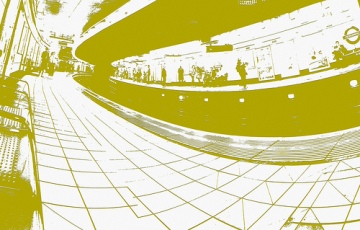In our continuing study of Ground Level as an ethic for travel writing, we look now at the importance of recognizing what’s “underground,” and how failing to find it can lead stories – even with all facts “correct” – to be untrue.
MY FATHER IN LAW still lives in the same house he built 30 years ago in Buenos Aires. Now he lives there alone. He spends most of his time alone. He works in his garden. He feeds the cats and the goldfish. He takes his tea outside – even in winter when it’s cold – where he sits quietly and watches birds land in the Araucaria.
